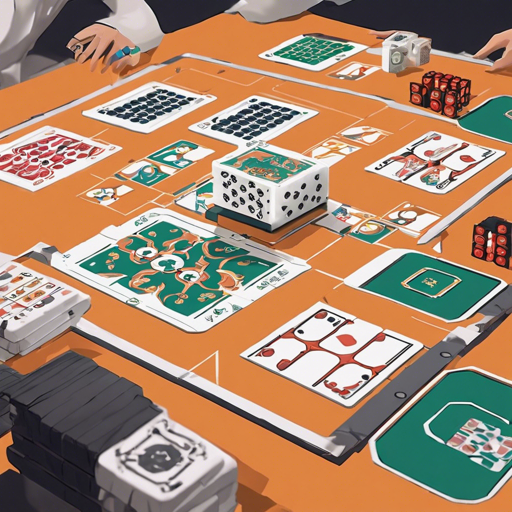Welcome to the fascinating world of DouDizhu, a popular card game in China that brings together strategy, collaboration, and competition. Here, we will explore DouZero, a reinforcement learning framework developed by Kwai Inc. that has conquered this challenging game using self-play deep reinforcement learning methods. In this article, you’ll learn how to set up, train, and evaluate DouZero, along with troubleshooting tips to ensure a smooth experience.
What Makes DouDizhu a Challenge?
DouDizhu is not your average card game. It comprises immense state and action spaces, with around 10,000 possible actions! Imagine trying to navigate a large city without a map—each turn can take you down a different path. Players must compete and cooperate under imperfect information, making it an intriguing problem for AI. DouZero smartly combines deep neural networks and traditional Monte Carlo methods to find a way through this complex maze.
Installing DouZero
Ready to dive into the action? Here’s how you can set up DouZero:
- First, ensure you have Python 3.6+ installed on your system.
- Clone the DouZero repository by running:
git clone https://github.com/kwai/DouZero.git - Navigate into the cloned directory:
cd douzero - Install the required dependencies:
pip3 install -r requirements.txt - For a stable version, use:
pip3 install douzero
Training Your DouZero Model
Using GPUs
To train your model using a GPU, simply run:
python3 train.pyFor training on multiple GPUs, specify options like:
python3 train.py --gpu_devices 0,1,2,3 --num_actor_devices 3 --num_actors 15 --training_device 3Using CPUs
If you are a Windows user or prefer using CPUs, here’s how to do it:
python3 train.py --actor_device_cpu --training_device cpuEvaluating Your Model
Once you have trained your model, it’s time for a test against various agents. Here’s how you can evaluate:
Step 1: Generate evaluation data:
python3 generate_eval_data.pyStep 2: Self-play evaluation:
python3 evaluate.py --landlord random --landlord_up rlcard --landlord_down randomTroubleshooting
Should you encounter any issues—like operating errors on Windows or slow performance—consider the following:
- Ensure your CUDA installation is correct and compatible with your GPU.
- If on Windows, remember that GPUs aren’t supported for training as actors; you may need to utilize CPU-based training.
- Utilize the community resources and discussions available through the fxis.ai platform for collaborative support.
For more insights, updates, or to collaborate on AI development projects, stay connected with fxis.ai.
Conclusion
At fxis.ai, we believe that such advancements are crucial for the future of AI, as they enable more comprehensive and effective solutions. Our team is continually exploring new methodologies to push the envelope in artificial intelligence, ensuring that our clients benefit from the latest technological innovations.

